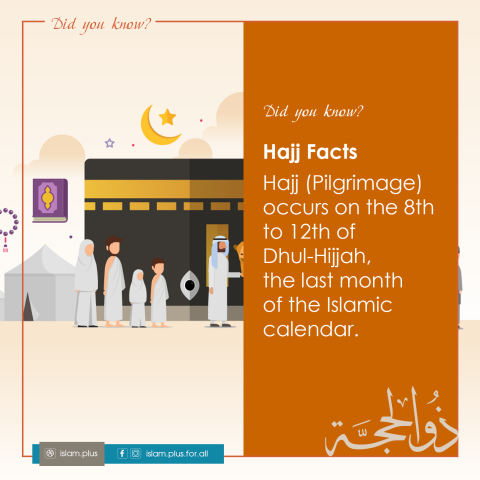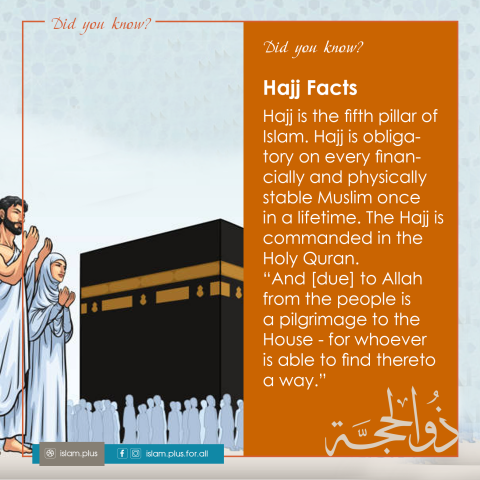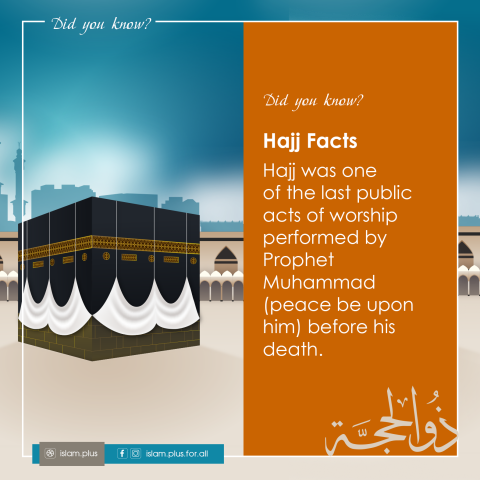
Aisha Stacey
Who are the Mothers of the Believers? You might have heard the expression Ummahat al-Mumineen. This translates into English as the ‘Mothers of the Believers’ and this is a title that refers to the wives of Prophet Muhammad (peace be upon him). They were his wives in this dunya and will be his wives in the akhirah.
1- Khadijah bint Khuwaylid (b.556 – d.619 CE)
Mary, the daughter of Imran, was the best among the women (of the world of her time) and Khadijah is the best amongst the women (of this nation). (Al-Bukhari)
Khadijah was the first wife of Prophet Muhammad, whom she met as a widow of a wealthy merchant but had become prosperous in her own right. She hired Muhammad as a business agent but soon came to see him as a suitable husband.
According to most sources she was about 40 and Muhammad about 25 when they married.
Khadijah bore him six children, including two sons who died in infancy. She gave Muhammad support and encouragement when he received his first revelations and remained loyal to him when many prominent Makkans began to oppose him. While she lived, Muhammad took no other wives. He loved, missed and remembered Khadijah for the rest of his life.
2- Sawdah bint Zam’a (b.unknown – d.674 CE)
After a marriage of twenty-five years the Prophet’s first wife, Khadijah passed away. He was left alone to raise a small family and found that he could not devote enough time to calling the people to Islam so he decided to marry again. He chose a widow named Sawdah bint Zam’a.
Sawdah and her first husband were amongst the very early converts to Islam who immigrated to Abyssinia. Her husband passed away in exile and she was left a poor widow with small children.
Prophet Muhammad sought approval for their marriage from Sawdah’s non-Muslim parents. The parents agreed and then directed him to seek approval from Sawdah herself.
With this union, Sawdah’s and the Prophet’s households merged and the Prophet had more time to carry out the prophetic mission. They were married for three years before Prophet took another wife.
Sawdah had the great honor of being an immigrant for the sake of Islam on two occasions, to Abyssinia and then to Medina. She was the first of a number of widows the Prophet married. Sawdah had a reputation for being a kind, charitable and jovial woman.
3- Aishah bint Abu Bakr (b.612 – d.678 CE)
Aishah was the daughter of Abu Bakr, one of Prophet Muhammad’s closest friends and supporters. Her betrothal to him at a young age fortified that relationship. Aishah was raised as a Muslim while most of the close companions were converts to Islam.
After marriage she and the Prophet became extremely close and many ahadith attest to this fact. She was his beloved wife and an extremely intelligent scholar of Islam. She is credited with narrating more than 2000 ahadith and became noted for her sharp intelligence, love of learning and impeccable judgment.
Aishah was one of only three of Prophet Muhammad’s wives who memorized the entire Quran. Among her notable attainments were that she was the only wife that was with the Prophet when he received revelation and it was in Aishah’s arms that the Prophet died.
Aishah was widowed at the age of 18 or 19 years old and went on to teach and play a significant role in the dissemination of Islam for more than 40 years.
4- Hafsah bint Umar ibn Al-Khattab (b.605 – d.665 CE)
Prophet Muhammad’s fourth wife was Hafsah, the daughter of one of Prophet Muhammad’s closest confidantes, Umar ibn Al-Khattab. Their marriage was an astute political alliance. Hafsah had been married at a young age and participated in the migrations to both Abyssinia and Medina. Sadly she was widowed when only eighteen years old but she then had the honor of marrying Prophet Muhammad and linking the Al-Khattab family with the Prophet’s family.
Hafsah and Aishah were the youngest of Prophet Muhammad’s wives and both had similar personalities; they were strong, determined women and for the most part seemed to get on well.
Hafsah was able to both read and write and, like Aishah, memorized the entire Quran. She was both pious and intelligent and would spend hours pondering over the verses of the Quran.
It was Hafsah who had the great honor of being the custodian of the first Mushaf which came into her possession after the death of her father. Hafsah was married to the Prophet for eight years, and after his death she lived for another thirty four years.
5- Zaynab bint Khuzaymah (b.595 – d.624)
Zaynab was the first of Prophet Muhammad’s wives that did not come from the tribe of Quraish. She died less than one year after her marriage and as a consequence very little is known about her. Before this marriage she had earned the title of Mother of the Poor due to her work with the poor and her generosity to them.
There is some dispute about how many times Zaynab was widowed before her marriage to Prophet Muhammad, may the mercy and blessings of God be upon him.
However her last husband died in battle and her marriage to Prophet Muhammad set a precedent for others to follow. Muslim men no longer feared that their deaths in battle would mean starvation and neglect for their families. It became honorable to marry the widows of the deceased.
6- Umm Salamah bint Abu Umayyah (b.596 – d.680 CE)
Umm Salamah married Prophet Muhammad at the age of twenty nine, after her first husband died from the wounds he received while fighting in the battle of Uhud.
Umm Salamah and her husband were part of the migration to Abyssinia. Her life was filled with examples of patience in the face of trials and tribulations.
She and her husband were among the first to leave Mecca bound for Medina when she was forced to endure separation from her husband and the abduction of her son. At the death of her husband she made du’a to Allah:
“O Lord, reward me for my affliction and give me something better than it in return, which only You, the Exalted and Mighty, can give.”
Marriage to the Prophet of Allah answered that du’a. Umm Salamah narrated more than 300 hadiths, many of them concerning women. She accompanied the Prophet on many of his expeditions and was married to him for seven years until his death. Umm Salamah outlived all the other wives and died at the age of eighty four.
7- Juwayriyah bint al-Haarith (b.608 – d.673 CE)
Juwayriyah came to the Prophet’s attention when she was captured in the battle against the tribe Banu Mustaliq. She was the 20 years old daughter of the chief of Banu Mustaliq and her marriage brought about an alignment between her tribe and the Muslims.
When Prophet Muhammad married Juwayriyah it allowed the tribe to enter Islam with honor by removing the humiliation of their defeat. As soon as the marriage was announced, all the war booty that had been taken from Banu Mustaliq was returned, and all the captives were set free.
Juwayriyah was married to the Prophet for six years, and lived for another thirty-nine years after his death. She died at the age of sixty-five.
8- Zaynab bint Jahsh (b.590 – d.641 CE)
Zaynab, a young girl from the noble line of Quraish was once married to Prophet Muhammad’s freed slave and adopted son Zayd, a man who was very close to the Prophet.
Like all young girls brought up in relative luxury she had very high expectations for marriage and Zayd did not fit the description of the man she had in mind. However to please the Prophet her family allowed the marriage to take place.
Their marriage was short lived and stormy and to please both of them, Prophet Muhammad allowed them to divorce. This caused a dilemma because divorce was frowned upon and left a woman in a difficult situation; as a way to please all parties including Zaynab’s family she was married to Prophet Muhammad.
Verses in the Quran were revealed to deal with this matter and by marrying Zaynab, Prophet Muhammad demonstrated that in Islam an adopted son is not the same as a natural son. Zaynab joined the growing family of Muhammad and was known for her generosity and charitable works. She died at the age of fifty.
9- Umm Habibah bint Abu Sufyan (b.589 – d.666 CE)
Ramlah, also known as Umm Habibah was the daughter of Abu Sufyan a leader of the Quraish and at that stage an enemy of Islam. She declared her faith without fear of the consequences to herself and she held fast to her faith when she was severely tested.
After converting to Islam and suffering persistent oppression, Umm Habibah and her husband joined the migration to Abyssinia. Her husband died thereafter. She was alone is a strange country with a young daughter and no visible means of support.
When the Prophet heard of her predicament he offered to marry her. She accepted. The king of Abyssinia, who had secretly converted to Islam and was a good friend to the fledgling Muslim community, provided her mahr and witnessed the marriage contract. It was some years before she was able to join her husband in Medina. She was married to Prophet Muhammad for four years until he passed away.
10- Safiyyah bint Huyayy ibn Akhtab (b.610 – d.670 CE)
Safiyyah was born in Madinah to Huyayy ibn Akhtab, the chief of the Jewish tribe Banu Nadir. Banu Nadir had been expelled from Madinah and settled at Khaybar. In 629 CE, the Muslims were victorious at the Battle of Khaybar and Safiyyah was taken captive. Muhammad suggested that Safiyyah convert to Islam, she agreed, and become Muhammad’s wife.
Despite her conversion, Muhammad’s other wives teased Safiyyah about her Jewish origin. Prophet Muhammad once said to his wife:
“If they discriminate you again, tell them that your husband is Muhammad, your father was Prophet Aaron and your uncle was Prophet Musa. So what is there in that to be scornful about?”
Safiyyah was twenty-one years old when the Prophet died. She lived for another 39 years, passing away in Medina at the age of 60.
11- Maymunah bint al-Haarith (b.594 – d.674 CE)
Maymunah, or Barra as she was then called, yearned to marry the Prophet and offered herself to him in marriage. He accepted. Maymunah lived with the Prophet for just over three years, until his death. She was very good natured and her nephew, Ibn Abbas, who later became the greatest scholar of the Quran, learned much from her knowledge.
Source: About Islam


 Quran
Quran






Add new comment